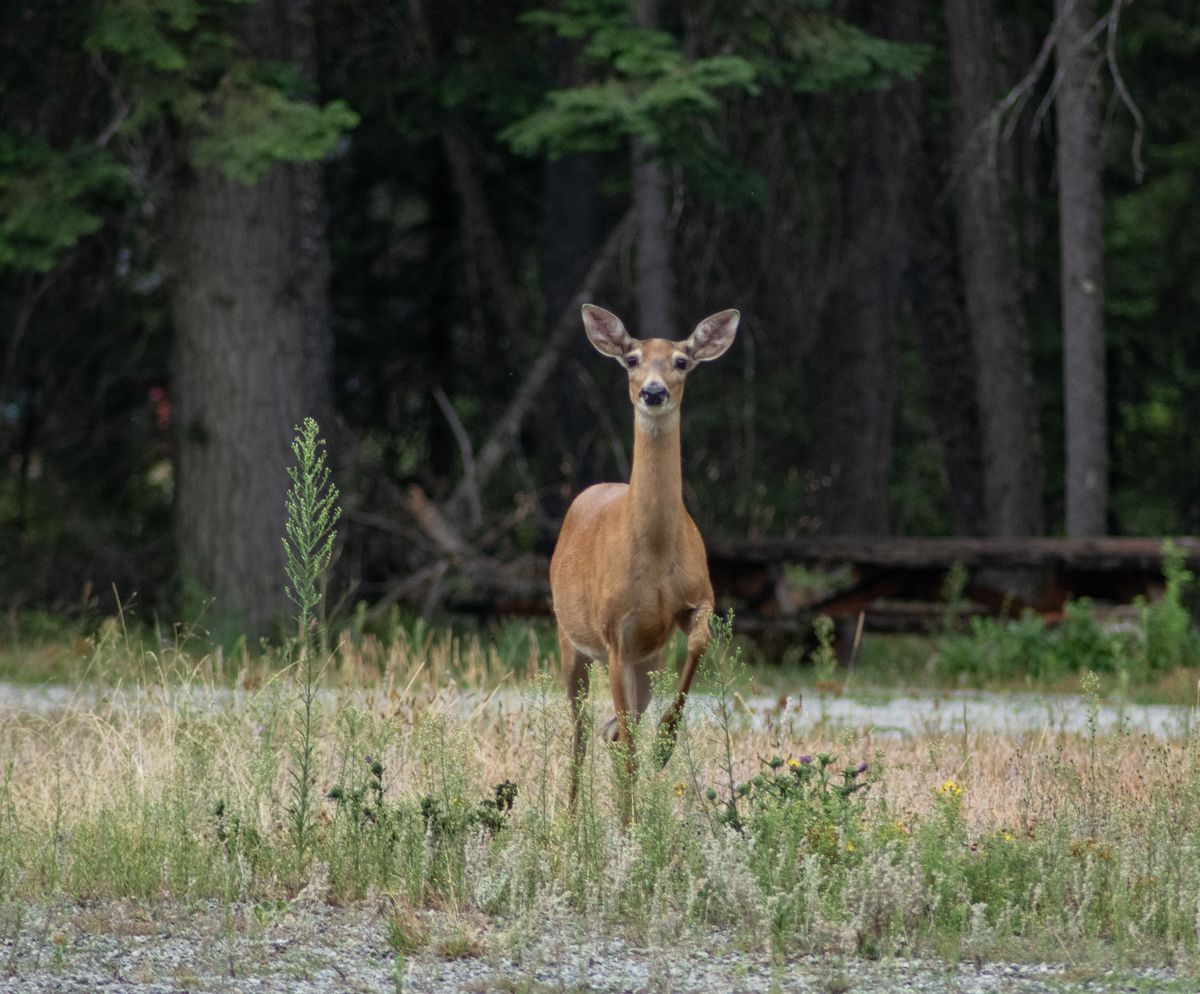Washington bans feeding wildlife in parts of Spokane County to aid CWD fight

Wildlife feeding is now formally off limits in parts of Spokane County under a new rule announced Thursday as part of the state’s fight against chronic wasting disease.
The Washington Department of Fish and Wildlife has finalized an emergency rule banning the feeding of elk, moose and deer in three hunting districts surrounding Spokane.
It’s already illegal to feed carnivores like bears, and wildlife officials have long discouraged feeding wildlife, but the rule announced Thursday marks the first time the agency has prohibited feeding the three antlered species.
The prohibition is one of several measures the agency has put in place to limit the spread of CWD, an always-fatal condition that was discovered in a deer in north Spokane this summer.
Washington was the 35th state to detect the disease, which attacks the nervous systems of deer, elk and moose. It is not known to infect humans, though health officials advise against eating meat from infected animals.
Left unchecked, it has the potential to do major damage to cervid populations.
There is no cure, so combating the disease means trying to limit or slow its spread. Last month, the WDFW announced a suite of emergency rules in response to the detection, including a ban on hunting with bait and mandatory CWD testing for hunters near where the infected deer was found.
The agency also put restrictions on transporting dead animal parts from Eastern Washington to other parts of the state.
A prohibition on feeding wildlife seeks to keep people from encouraging animals to congregate in large numbers. CWD spreads through bodily fluids like saliva and urine, and drawing animals together over hay or grain can encourage its spread.
The ban applies to game management units 124, 127 and 130. The infected deer was found in the Fairwood area of north Spokane, which is in unit 124. The borders of the other two units are within 10 miles of where the deer was found.
Combined, the three units include nearly all of Spokane County and stretch to the Idaho border in the east and the town of Sprague in the west. Only a sliver of north Spokane County is excluded.
Agricultural practices are not affected by the feeding ban, WDFW said in a news release.
Many states prohibit feeding wildlife. In the past, Washington lawmakers have proposed a statewide ban. Some cities have local ordinances banning wildlife feeding, such as Medical Lake.
WDFW says feeding wildlife is often well-intentioned but can have detrimental effects even beyond the spread of CWD. It can habituate animals to people or cause them to show aggressive behavior to people or pets. It could also cause them to cross roads and get hit by cars.
Staci Lehman, a WDFW spokesperson, said the agency would consider making the rule permanent and applying it statewide during a formal rulemaking process.
Doing so would force the agency to confront its own role in feeding wildlife. Each winter, WDFW staff feed elk at the Oak Creek Wildlife Area northwest of Yakima.
Lehman said that operation has occurred for decades, and originally began as a way to ease the pressure elk were putting on agricultural producers in the area.
She said the practice is something the agency will have to “take a long look at.”